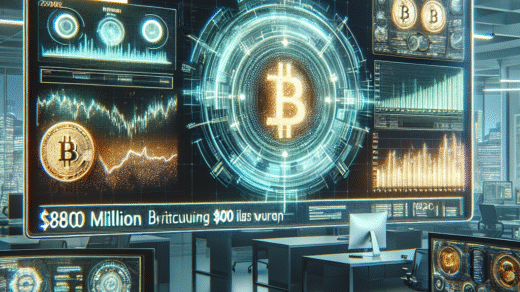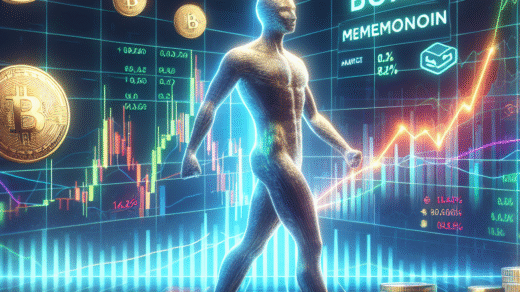China’s Ministry of Commerce (MOFCOM) recently addressed concerns regarding its new rare-earth export controls, clarifying that these measures are lawful national-security steps rather than outright bans. This clarification is crucial in understanding the implications for global supply chains, especially in industries reliant on rare-earth elements.
Understanding Rare Earths and Their Importance
Rare earth elements, a group of 17 essential elements, play a vital role in various high-tech applications, including permanent-magnet motors for electric vehicles (EVs), wind turbines, and defense electronics. China’s dominance in the rare-earth sector is significant, accounting for approximately 70% of global production and around 90% of processing and refining. This control means that any changes in China’s export policies can significantly impact global supply chains, even if mining or manufacturing occurs elsewhere.
China’s Export Control Measures Explained
In a Q&A session posted on social media platform X, a MOFCOM spokesperson emphasized that the recent measures, effective from October 9, are designed to refine China’s export control system in alignment with domestic laws and non-proliferation commitments. The spokesperson highlighted the military relevance of medium- and heavy rare earths, indicating that these elements are closely monitored within the context of international trade.
Licensing Over Bans: A Strategic Approach
According to the spokesperson, China will issue licenses for eligible civilian trade, indicating a more nuanced approach rather than imposing outright bans. The ministry stated that the implementation of these measures will focus on licensing rather than prohibition. Applications for licenses will be reviewed under existing laws, and approvals will be granted when they meet the necessary qualifications. Additionally, China is actively considering facilitation measures, including potential general licenses and exemptions, to promote legitimate trade.
Assessing the Impact on Global Supply Chains
MOFCOM declared that the anticipated impact of these measures on global supply chains will be “very limited.” This assertion aims to reassure commercial users that compliant civilian exports will have the opportunity to receive approval. The proactive communication of these policies is vital in maintaining stability in global markets, especially for industries that heavily rely on rare earths.
Diplomatic Tensions with the U.S.
In response to President Donald Trump’s comments regarding an impending 100% tariff on Chinese imports and potential U.S. export controls on critical software, MOFCOM characterized the American stance as a “double standard.” The spokesperson pointed out the extensive nature of U.S. control lists and de minimis rules, which they believe exemplify an expansive approach to trade control.
A Call for Dialogue and Fair Competition
China’s Ministry of Commerce expressed its desire to avoid a trade war but made it clear that it is prepared to take “resolute measures” to protect its interests if the U.S. implements its proposed tariffs. The spokesperson urged a return to established consultation channels to manage differences on a reciprocal basis, emphasizing the importance of dialogue in resolving trade issues.
Port Fees and Unilateral Measures
In separate comments, MOFCOM criticized upcoming U.S. port fees set to take effect on October 14 for certain Chinese-linked vessels. The ministry described these fees as unilateral and inconsistent with World Trade Organization (WTO) rules and existing bilateral agreements. To counter this, China plans to impose special port fees on U.S.-linked vessels under domestic regulations, aiming to protect the rights of Chinese companies and ensure fair competition in shipping.
Market Reactions and Bitcoin Trends
As of Sunday, October 15, 2023, at 9:15 a.m. UTC, Bitcoin was trading at around $111,271, reflecting a 0.5% decline in the past 24 hours and a 10% drop from its intraday high of $123,641 earlier in the week. The Crypto Fear & Greed Index currently reads 24, indicating “Extreme Fear” in the market, a stark contrast to the “Greed” sentiment observed just a week prior. This fragile market sentiment highlights the interconnectedness of global events, including geopolitical tensions and their potential impacts on cryptocurrency prices.
Conclusion: Navigating the Future of Rare Earths and Cryptocurrencies
As China navigates its rare-earth export controls amid rising tensions with the U.S., the implications for global supply chains and markets, including cryptocurrencies, remain significant. Stakeholders in the cryptocurrency space should remain vigilant, as shifts in global trade policies can ripple across various sectors. Understanding these dynamics is essential for investors and businesses alike as they adapt to an ever-evolving landscape.
Further Reading
If you’re interested in learning more about cryptocurrency investment and trading, check out our guides on How to Buy Bitcoin, How to Buy Cryptocurrency, and Bitcoin ETFs.
Meta Description: Discover China’s recent clarification on rare-earth export controls, emphasizing strategic licensing over bans, and explore its implications for global supply chains and cryptocurrency markets. Stay informed on the latest developments in the intersection of geopolitics and digital currencies.







